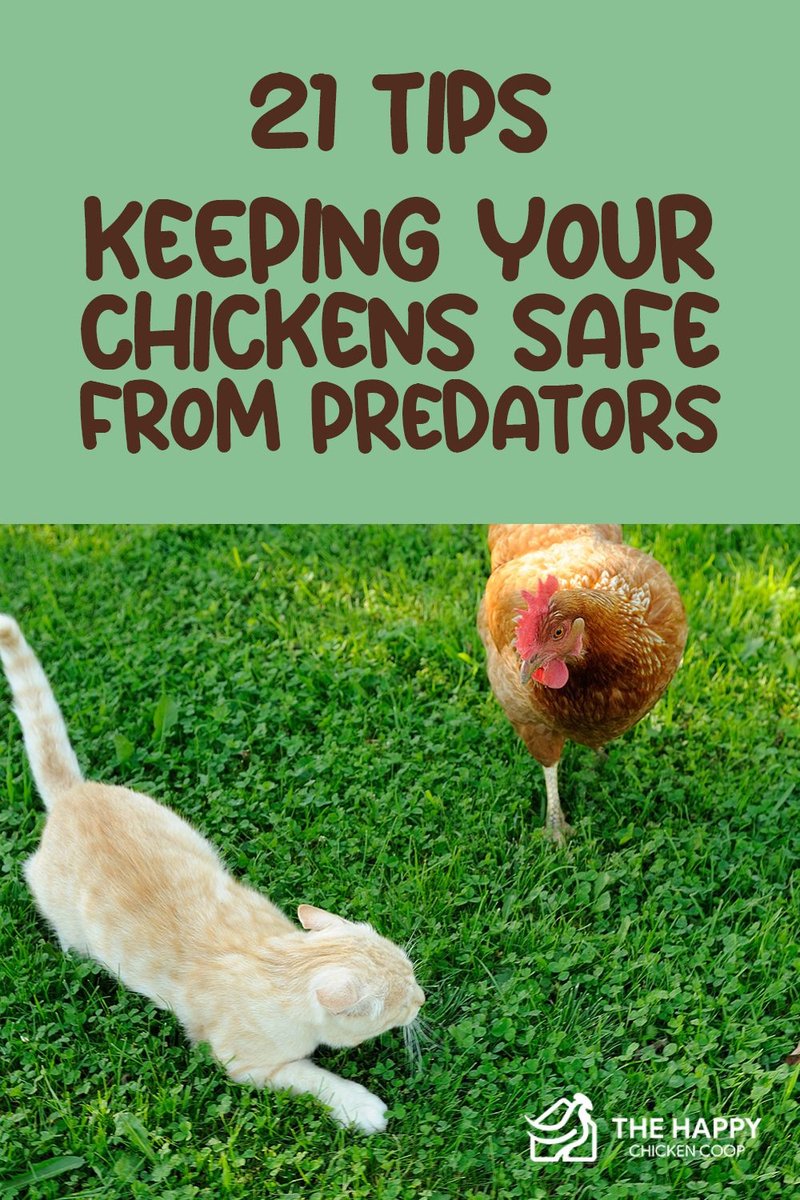
Here’s the thing: predators don’t care how much you love your chickens. They see dinner. So, you need to be proactive. There are many ways to shield your flock from harm, and it starts with understanding what threats they face. In this guide, I’ll walk you through various strategies to keep your chickens safe. From building secure housing to employing some clever tricks, let’s dive right into it.
Understanding Common Predators
Before we can defend our chickens, it’s essential to know who we’re up against. Common predators include:
- Foxes: These cunning animals are known for their agility and intelligence. They often hunt at dusk or dawn.
- Hawks: They soar high above, using keen eyesight to spot their prey from the sky. They can swoop down quickly, so free-ranging chickens are particularly at risk.
- Raccoons: With their dexterous paws, raccoons can open latches on coops and are often nocturnal hunters.
- Snakes: Depending on your region, snakes can sneak into coops and pose a threat to chicks or eggs.
Understanding these predators helps you take appropriate action. For instance, knowing that foxes often strike at dawn can help you secure your coop before the sun rises.
Building a Secure Coop
Your chicken coop is your first line of defense against predators. It needs to be sturdy, secure, and designed with safety in mind. Start with strong materials—think heavy-duty wood or metal.
Make sure your coop has:
- Solid Walls: Use thick plywood or metal sheeting to make it harder for critters to break in.
- Secure Doors: Doors should fit tightly and have strong locks. Avoid flimsy latches that raccoons can easily manipulate.
- Wire Mesh: Enclose windows and ventilation areas with wire mesh. Ensure it’s buried at least a foot into the ground to prevent digging.
Let’s not forget about the roof! A solid roof keeps out airborne predators, and a sloped design can prevent build-up of snow or debris that might provide access points.
Creating a Safe Run Area
If you want your chickens to enjoy some outdoor time, a run area is essential. This space allows them to roam while still being protected. Here are some tips to make it predator-proof:
1. Fencing: Use high fencing—preferably at least six feet tall. Consider burying the base into the ground or using an apron of wire to deter digging.
2. Top Cover: If hawks are a concern, consider adding a cover over the run, such as wire mesh or netting. This way, your chickens can scratch and peck without worry.
3. Regular Maintenance: Check your run for any holes or weak spots regularly. Predators can be crafty, and what’s safe one day might not be the next.
By ensuring your chicken run is safe, you’re giving your flock a chance to exercise and socialize while staying out of harm’s way.
Using Guard Animals
Sometimes, the best defense is an offense. Enter the guard animal. Some animals can naturally deter predators or help protect your chickens. Here are a few options:
– Dogs: Certain breeds, like Great Pyrenees or Anatolian Shepherds, are known for their protective instincts. They’re loyal and can create a natural barrier against intruders.
– Cats: While they might not ward off larger predators, cats can help keep smaller pests, like mice and rats, away from the coop.
– Geese: Believe it or not, geese can be surprisingly effective in alerting you to danger. They’re alert and will honk loudly if something’s amiss.
Having a guard animal can add an extra layer of confidence that your chickens are safe while roaming freely.
Implementing Deterrents
In addition to physical barriers, consider using some deterrents to keep predators at bay. Here are a few ideas:
– Motion-activated Lights: These can startle predators, making them think twice about approaching your coop.
– Sound Devices: Noisy gadgets or alarms can scare off curious animals. Just be cautious about how loud they are—your neighbors might not appreciate a loud alarm at 3 AM!
– Decoys: Fake owls or other predator decoys can trick some birds into staying away. Just remember that you might need to move them around occasionally; predators can catch on!
Using these creative deterrents can add another layer of safety for your flock.
Regular Monitoring and Maintenance
Keeping chickens safe is an ongoing commitment. Regular monitoring of your setup is key. Here’s what you should keep in mind:
1. Inspect the Coop and Run: Look for signs of wear or damage. Repair anything that might compromise security.
2. Check for Signs of Predators: Look for footprints, droppings, or other signs that a predator may be lurking nearby.
3. Daily Responsibilities: Get into the habit of checking on your chickens daily. Not only does this keep your flock safe, but it helps you bond with them, too!
By dedicating a little time each day to monitor your chickens, you’ll catch potential problems before they escalate.
Keeping your chickens safe from predators is crucial for their well-being and for you as a chicken keeper. By building a secure coop, creating a safe outdoor run, considering guard animals, and using deterrents, you can protect your feathered friends effectively. Remember, it’s all about being proactive rather than reactive.
So, whether you’re just starting with chickens or have an established flock, make predator protection a priority. With the right strategies, you can let your chickens enjoy the great outdoors while keeping them safe from unwanted guests. Happy chicken-keeping!

